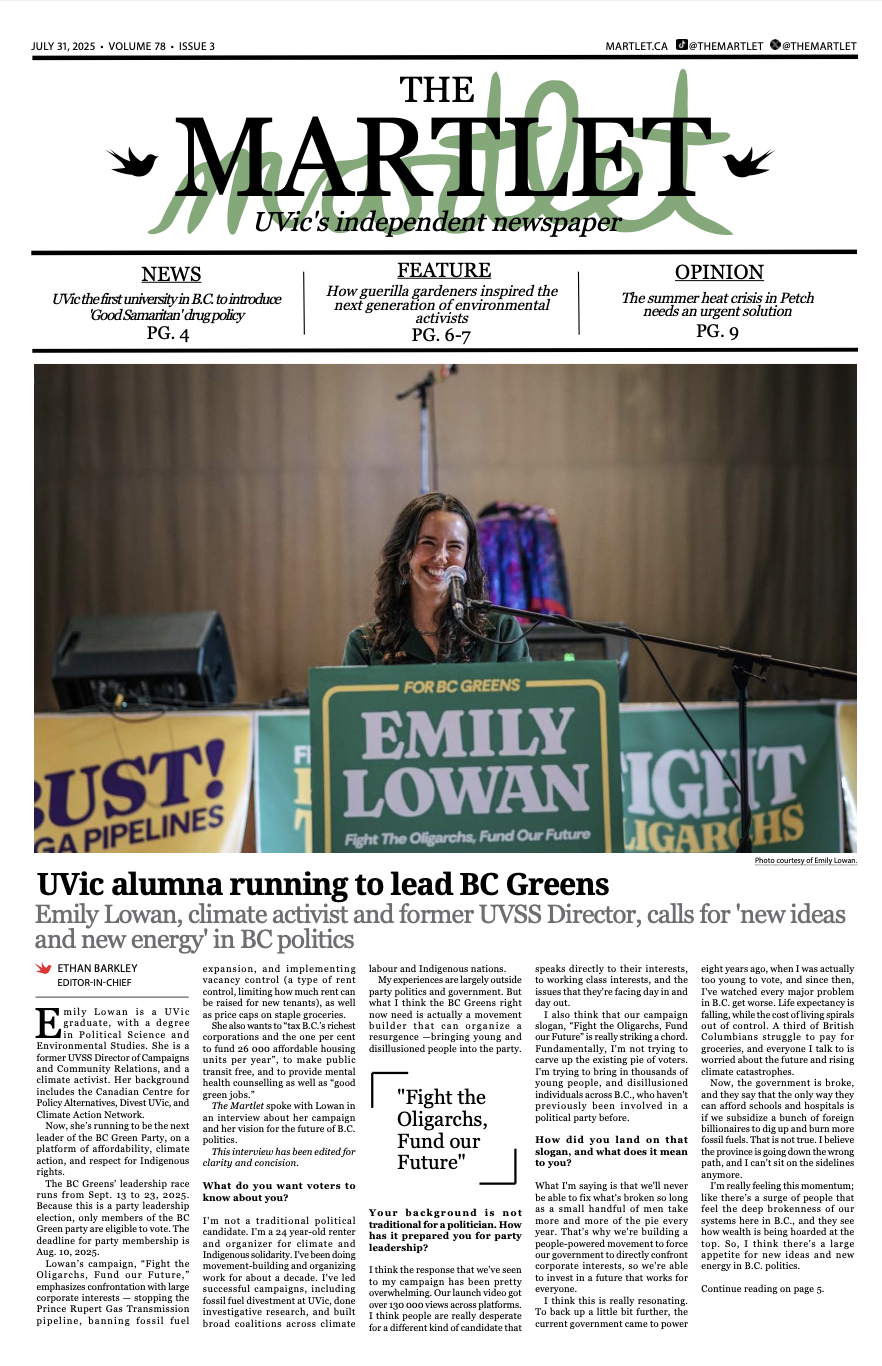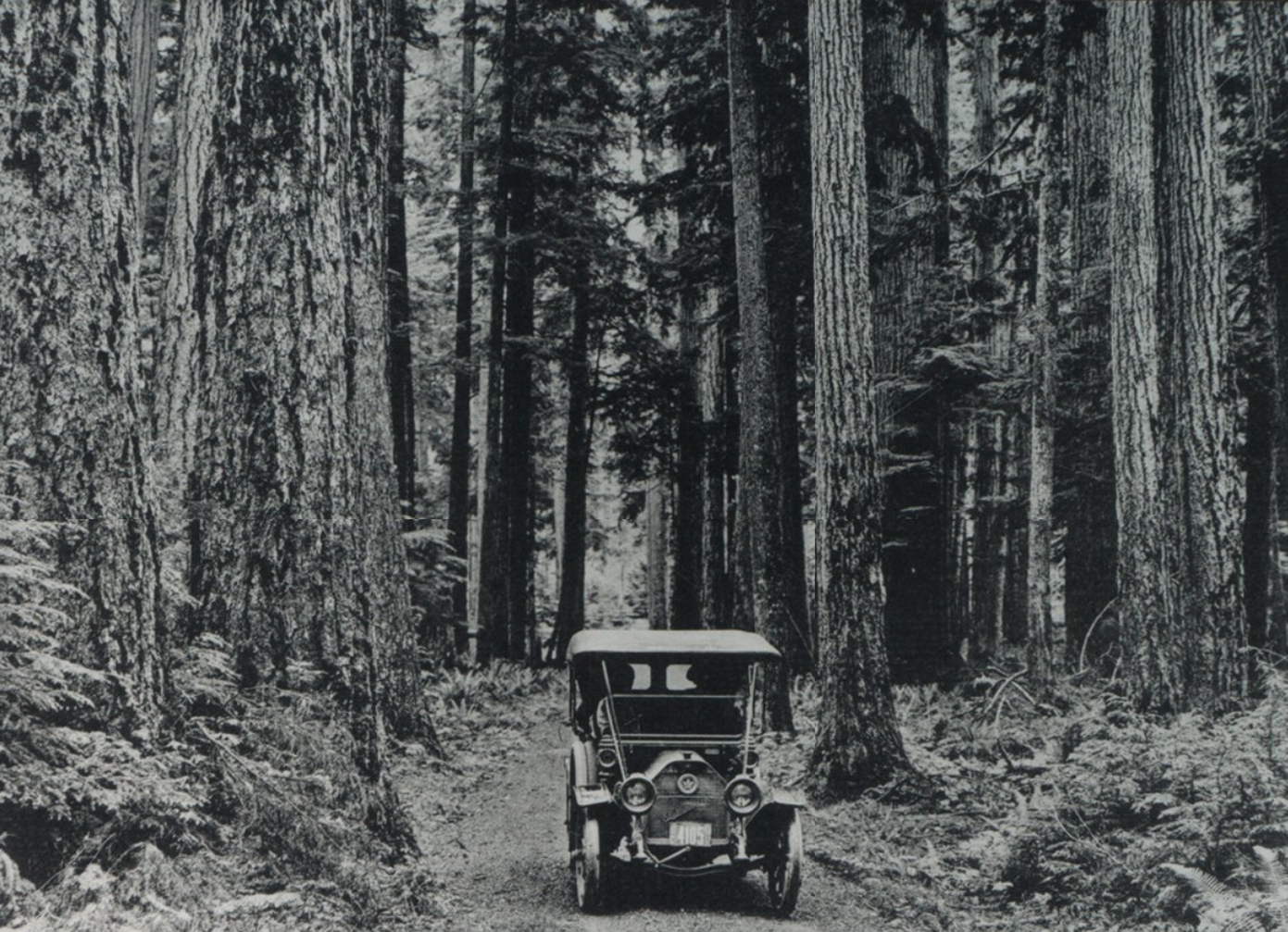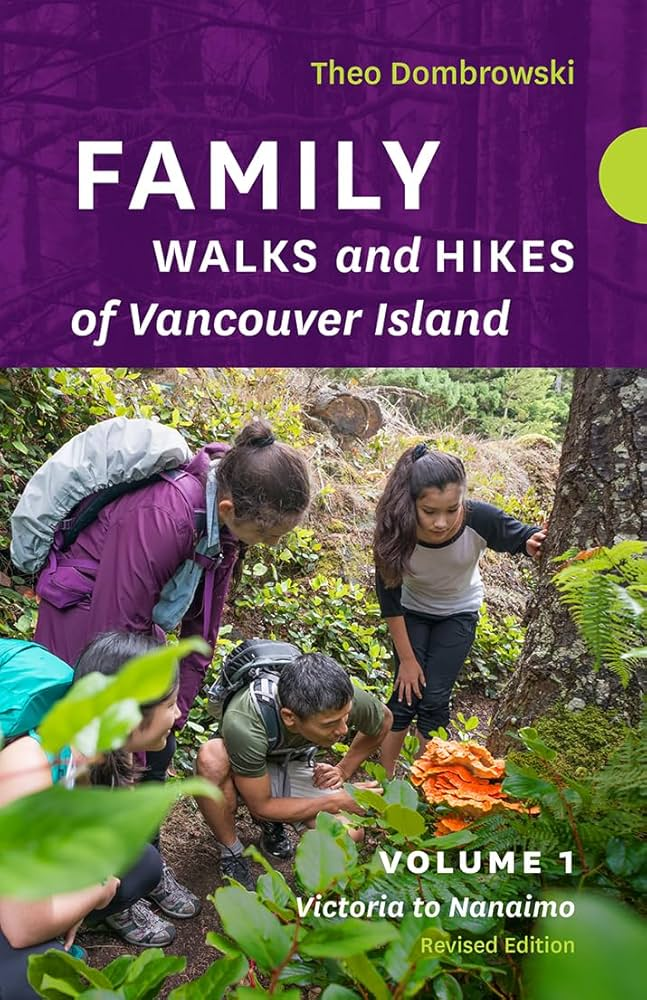“It’s a really big deal to be seeing change like this”

Photo courtesy of Kwiadda McEvoy.
This summer, UVic undergrad and member of the Haida Nation Kwiadda McEvoy will be helping their Nation chart its course towards renewable energy.
McEvoy’s internship, officially titled “Identifying pathways to reduce diesel use on Haida Gwaii,” will help build Haida Gwaii’s first Community Energy Plan. This strategy will outline how the Nation makes decisions about the future of energy on the archipelago.
“This is not just affecting now,” said McEvoy. “This is going to be something that the next generations will be dealing with. Whatever I am able to support right now is what will be handed off to them.”
McEvoy’s internship is facilitated through UVic’s Accelerating Community Energy Transformation (ACET) initiative. It will involve planning engagement sessions to bring the voices of Haida members to the table in discussions about how to transition the archipelago to renewable energy.
Haida Gwaii, which derived 60 per cent of its power from diesel in 2020, aims to follow CleanBC’s goal of an 80 per cent reduction in diesel use by 2030. While this may seem like a swift transition, McEvoy is optimistic about its achievability from seeing the progress made by the B.C. government and BC Hydro to support Indigenous communities up and down the coast.
Midori Campos, a Haida Gwaii resident who organizes a Youth Climate Action Fellowship that McEvoy is involved with, said that McEvoy has always had their eyes set on working towards larger solutions — not just creating renewable energy but also systemic change that incorporates Haida culture.
“They have this really holistic view of what a just transition would look like,” said Campos, which “is going to be so important as Haida Gwaii itself moves from diesel to other climate solutions.”
McEvoy has long been involved in climate activism, focusing on bringing renewable energy to Haida Gwaii. As a high school student, they organized Climate Youth Strikes and other community climate events.
Now, studying anthropology at UVic, they are still motivated to make a change. Returning to Haida Gwaii each summer, McEvoy told the Martlet that the roots of the trauma and harm in the community become more apparent — yet recent steps towards reconciliation are a sign of positive change.
Their internship comes two months after the Haida signed a historic Title Agreement with the Canadian government, recognizing the Haida people’s property rights to the entire archipelago.
“It’s a really big deal to be seeing change like this happening in my own lifetime,” said McEvoy. “With our recent agreement with Canada, I think things will only be going uphill.”
This title agreement is part of an ongoing series of agreements between the federal, provincial, and Indigenous government that will transfer the roughly 500 000 hectares of Crown Land to the Haida Nation. Over a five-year transition period, the various governments will work together to bring current land use under the guidance of Haida stewardship.
With the recognition of Haida Gwaii as a self-governing body, “there’s a really big emphasis and need” for community involvement in how Haida Gwaii sources its energy, said McEvoy.
These newfound legal rights will grant the Haida Nation more say in how the archipelago will transition away from fossil fuels, ensuring that the move to cleaner energy is done in a way that aligns with Haida values.
“I want to take full advantage of this point in time that we’re in,” said McEvoy. “It’s not something that I’m doing for myself or my family; it’s a lot bigger than I am.”








